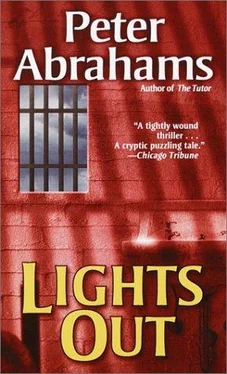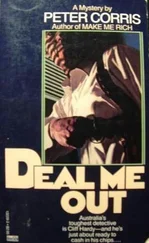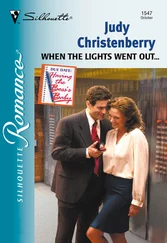A salty breeze curled across the road. Eddie still hadn’t seen anyone. The island might have been deserted and he a real-life equivalent of Sir Wentworth Staples, watching for a galleon through the trees. The illusion grew stronger and stronger, and with it came the idea of making a life here. Then he heard the thwack of tennis balls.
Eddie shifted the pack on his back, walked a little faster, recalling the red clay court that lay ahead, with its sun-bleached backboard and damp and dark equipment shed. Just ahead: behind that line of scrub pines.
But as Eddie drew closer he saw they were all gone: the dried-out clay court, the cracked backboard, the tumbledown shed. Instead there was an arched gate with a sign: “Pleasure Island Tennis Club”; and through it the sight of a dozen green all-weather courts, a clubhouse with a deck, and suntanned people in tennis outfits. Lots of them: lounging on the deck with drinks, drilling with the pros on the center courts, playing doubles on the side courts.
Eddie didn’t enter the gate. He stayed on the road, paved now and hot under his shoes, as it angled closer to the sea. He knew he was near the old fish camp, close enough, he thought, to hear the ocean. But all he heard was the whine of high-pitched engines. Then he came to the row of casuarinas that shielded the fish camp from the road. He walked through them and saw that the fish camp too was gone. In its place was a go-cart track. Three white kids fishtailed around the far turn, not far from the spot where Jack’s cabin had stood. A black man gassing carts at the side of the track glanced up at Eddie.
Eddie followed the road to its end at Galleon Beach. The beach itself was the same, if you ignored the ranks of glistening bodies flopped on chaises longues. But where the six waterfront cottages, thatch-roofed bar and central building with office, kitchen, dining room, and the Packers’ suite had been, there now stood a slab hotel eight stories high. Behind the hotel Eddie saw fairways, sand traps, greens, and in the distance clusters of white squared-off villas like a hard-shelled growth on the hillsides. Brad Packer’s blueprint had come to life.
“Take your bag, suh?”
A boy in a blue polo shirt with the words “Pleasure Island” on the chest was beside him.
“I’m not staying,” Eddie said.
“Land-crab race tonight, suh.” The boy looked up at him with unblinking eyes.
Eddie smiled. “Who owns this place?”
“Big, big company.” The boy spread his hands.
“What’s it called?”
The boy thought. “United States company,” he said.
“You from this island?” Eddie said.
The boy nodded.
“Know a man named JFK?”
The boy took a step back.
“He’s an old friend,” Eddie said. “I’d like to see him.”
“Ol’ frien’?” said the boy, backing away some more.
“What’s wrong?” Eddie said.
“He got AIDS.”
“I know.”
“You got it too?”
“No.”
The boy relaxed a little.
“Where is he?” Eddie said.
“Down to Cotton Town.” The boy pointed south.
“How far is that?”
“Far,” said the boy, “except when the jitney carry you.”
“Where do I get the jitney?”
The boy pointed his chin at the hotel.
Eddie went inside. There was a newsstand, a gift shop, a bar. A big-bellied man wearing nothing but a bathing suit and a straw hat sat on a stool with a drink in his hand. “I’m gettin’ smashed on Goombay smash,” he said to the bartender. “Is that funny or what?”
The bartender smiled, but her eyes were expressionless.
The big-bellied man leaned over the bar. “What’s your name, sweetheart?”
Eddie, walking to the reception counter, missed her reply.
No one was at the counter. Eddie rang the bell. A door opened and a woman came out. She was a big woman, perhaps twenty pounds overweight, with short frosted hair, plucked eyebrows, and a face that had spent too long in the sun. She wore a name pin on her white blouse: “Amanda,” it said, “Assistant Manager.”
“Checking in?” she asked, noticing the backpack.
“No,” Eddie replied. “When’s the next jitney to Cotton Town?”
The woman didn’t answer. She was staring at his face. “You look like someone I used to know,” she said.
“Yeah?” Eddie said, feeling in his pocket for money to pay the fare.
“And sound like him too.” She tilted her head to one side, revealing a wrinkled line at the base of her neck. “I couldn’t forget those eyes. You’re Eddie Nye, aren’t you? Jack’s brother.”
“That’s right,” he said, looking at her face again, hardened and thickened by the sun, and not placing her.
“Have I changed that much?” the woman said.
His eyes went to her name pin: Amanda. “Mandy?”
“The one and only.” They looked at each other. “My God,” she said, “isn’t this something? I mean, what goes around comes around.”
“I’ve got a bad memory for faces,” Eddie said, thinking that a chivalrous phrase might be required but doubting that that was it. He searched her face for the features of the Mandy he had known, and found some; but smudged, blunted, coarsened. Like the others-Jack, Evelyn, Bobby Falardeau-she had aged more quickly than he, as though prison, with its bad food that kept him from eating too much, and its absence of sunlight, which had kept his skin unwrinkled, had slowed the life clock inside him. A nice thought; but it left out his hair, growing in gray.
“Of course I remember you-I never forget anyone I sleep with,” Mandy said, verifying Eddie’s doubt. “There haven’t been all that many, considering.”
The office door opened again and a little man came out, carrying a briefcase. “Not all that many what, dear?” he said.
“Requests for the Cotton Town jitney,” said Mandy. “Say hi to Eddie, an old acquaintance of mine. Eddie-my husband, Farouz.”
They shook hands. Farouz’s name pin read “Manager.”
“Gotta run,” he said, and went out.
Mandy’s eyes were on him again. “You’re lookin’ good,” she said. “Stayed in shape, unlike yours truly. I don’t have the discipline.” She raised her arms hopelessly. “That’s my sad story. What have you been up to?”
A routine question for most people, but not for him. Had he heard it right? “What have I been up to?”
His tone surprised her. “Since I wimped out on you that time up in Lauderdale,” she explained.
“Wimped out?”
She lowered her voice. “When the cops came. You don’t have much of a memory for anything, do you? I heard them come aboard and just grabbed some gear and jumped off. I didn’t mean to leave you hanging and all, but what could I do? Especially since I was hip to what was on board and you weren’t. I just knew you’d be okay.”
“Okay?”
Mandy glanced around to see if anyone was watching. “I know you were pissed off. But you could have answered my letters. After all, there was no harm done.” Eddie was silent, but something in his expression made her say, “What? What is it?”
“You’d better explain,” Eddie said.
“About what?”
“About no harm done.”
Mandy shrugged. “You know. Nothing came of it.”
“Nothing came of it?”
“Brad lost everything to the bank, of course, but I meant nothing came of it in terms of you. I was back at my parents’ in Wisconsin by that time-classic move, right? — but when they dropped the charges I wrote you, more than once, and you didn’t write back.”
“Wrote me where?”
“Care of your brother in Lauderdale. I kept in touch with him for a while. That’s how I knew you got off.”
Eddie leaned on the counter, not trusting his legs to hold him up. “Jack told you I got off?”
Читать дальше












